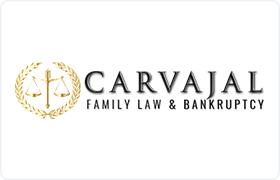North Bergen Divorce & Family Law Lawyer, New Jersey
Sponsored Law Firm
-
 x
x

Click For More Info:
-
Carvajal Family Law & Bankruptcy
2035 John F. Kennedy Blvd North Bergen, NJ 07047» view mapDivorce & Family Law Fighting For Your Families Best Interest
It is our mission to deliver the highest possible quality legal services to our clients. We do this professionally, ethically, effectively, and affordably.
800-811-9560
Jeffrey M Bloom
✓ VERIFIEDDivorce & Family Law, Workers' Compensation, Personal Injury, Traffic
Jeffrey M. Bloom was born in New York, NY. He moved to New Jersey as a young child and has lived in northern New Jersey for almost fifty (50) years.Mr... (more)
Adrienne D. Edward
✓ VERIFIEDCriminal, Immigration, Divorce & Family Law, Juvenile Law, Accident & Injury
For 25 years, Attorney Adrienne D. Edward has been offering top-notch legal representation to individuals and families throughout New York and New Jer... (more)
Thomas A. Portanova
Child Support, Adoption, Corporate, Business Organization
Status: In Good Standing
Frances Nicotra
Government Agencies, Family Law, Constitutional Law, Civil Rights
Status: In Good Standing
 Lazaro Carvajal North Bergen, NJ
Lazaro Carvajal North Bergen, NJ Practice AreasExpertise
Practice AreasExpertise



